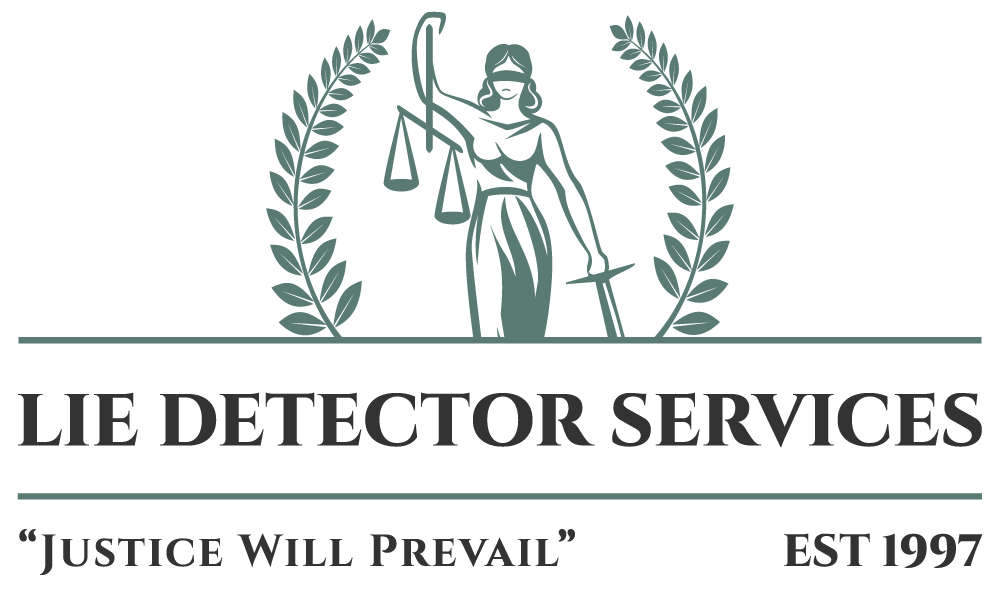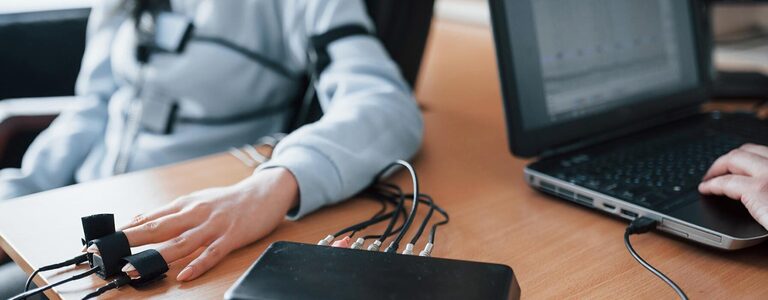
So, you want to know how to lie? Lie Detector Manchester
Wednesday 18th January 2023
EM
Being acknowledged experts in the field of lying we’re going to teach you how to lie. Now lying can and often is, complicated and difficult, especially if you don’t do it often. If you are a novice liar you must learn a few basics such as what constitutes a good lie. For example, pick a simple lie which is believable.
Preparation is key.
If you plan the lie ahead of time, it will help if you spend a little time memorizing the details. In fact, write it down and practice it until it sounds convincing. Never forget, liars need a good memory. Without doubt, the most important aspect of good lying is the delivery you will need to ensure the lie is delivered convincingly. If it's a really important lie, perhaps going down on one knee would add to the occasion. And you’ll need to avoid some of the more common things which betray a lie such as fidgeting, sweating profusely, palpations and avoiding eye contact.
Now then, to become a good liar you should keep your lie simple. Include details that make your lie seem legitimate but don’t overdo it to a degree where it becomes so complicated that you will be unable to maintain it. When it comes to lying it really is a case of KISS - keep it simple stupid. Simple lies are easier to deliver and a lot easier to maintain. For example, a lie may be “I’m late because the M6 had been closed and we all had to reverse 2 miles to get off and then take the country roads. Wrong. Too much information. A better lie would have been “”the M6 was absolutely at a standstill.
Do you choose to include others?
Avoid including other people in your lie. Using others as a witness or alibi makes your lie more complicated than it needs to be. If the person you lie to checks your alibi, they may find out you lied. Worse your witness may fall out with you one day and “do you in”.
If you are planning a lie with support from a third person, at least talk to them first to see if they are willing to cover for you. It would be very embarrassing if following the delivery of your lie your witness blurted out “I don’t know what the hell you’re talking about. I wasn’t there”.
Make your lie plausible. We have already pointed out that too much information is not good. When it comes to lying you should remember that “just enough is adequate”. Don’t exaggerate to a point where the listener starts to question what you are saying or dissolves into hapless mirth. Such situations can be difficult to recover from. Make your lie as realistic as possible.
Make sure your lie is flawless.
Carefully review your lie and see if it seems reasonable and try to see the lie from the point of view of the person you are going to lie to. Ask yourself if its the type of thing you would believe. Coming home late at night having told your wife you had to undertake mandatory overtime would be extremely difficult for her to believe if you were covered in lipstick, or smelling of alcohol. Every lie must be plausible if it is to successfully deceive.
It’s good policy to include an element of truth in a lie. Lies based on absolute falsehoods are usually detected quite easily but include an element of truth and the waters are easily clouded. Make a point of proving the truth part of your lie. It will add considerably to making the lie more believable.
Do remember that when it comes to expressing real emotion, this is easier done when you are telling the truth than when you are lying. If you emphasise the true part it’s easier to conceal your emotions. For example, if you stayed out till the early hours of the morning with a group of friends, among which was your ex-girlfriend Gertrude, telling your current girlfriend that you were out with Tom, Dick and Harry is perfectly true but you are lying by the absence of truth about Gertrude being there. Certainly, you were with those people, but you were also there with your ex.
As you become more proficient with your lying you will learn that it is possible to remove the pressure from lying simply by initiating the conversation on the subject you intend to lie about yourself. A voluntary lie goes a long way to fooling the average listener. You are hardly likely to have lied when it was you who volunteered the information. If the person you are addressing your lie to is already upset or suspicious, they are much more likely to criticise and challenge what you say. If on the other hand they have not given the situation much or any support they will be more likely to accept what you say.
The lie diary.
By now you will be starting to get the hang of things. Starting to realise just what an art form lying is but to be really accomplished you need to write down the details of the lie. You will no doubt be aware of the saying, which is very true, that liars need good memories. One of the hardest things about lying is keeping up with what you’ve said. It becomes even harder if you have to repeat the lie to many people over the course of time.
The problem is easily solved - write down the lie. If you have lied spontaneously, write down who you lied to and what you lied about. If you tend to do a lot of lying you may need to carry a notebook but be warned, overdo it and you will be carrying something around akin to the large print version of Tolstoy’s War & Peace. Writing helps you make things clear and remember them, which is why at school, teachers punish pupils with 500 lines of I must not do etc.
To move up the ranks to the position of advanced liar will take time but you can help considerably by practice saying the lie out loud. Repeat it again and again. Repeating a lie over and over will help you deliver it more effectively and more convincingly. An excellent way to practice your lying is with the use of a full-length mirror. Tell your lie and look carefully at your face. Does it have a nervous tick, is it bright red? If it’s not the same as your face normally is, then you are failing with your lie. Mobile phones are also very good. Set it up on a stand and then video a lie and then spend time reviewing it. Keep recording and playing back until you have it off pat.
Lie etiquette.
When delivering a lie keep your hands away from your face. Liars tend to twitch and fidget with their hands a lot. Keep your hands in your pockets and ensure they don’t twitch, or your reputation will be ruined. Under no circumstances run your hands through your hair=hair or rub your chin or nose. These are all signs of lying. Swaying back and forth, tapping your foot, or generally moving a lot are also signs you are lying. Don’t shrug your shoulders a lot either. Keeping your whole body relaxed and unmoving adds poise to your appearance, and it will keep people from being suspicious.
When delivering your lie keep your body facing the person you’re lying to. Standing side on is a defensive position and seen as a sign that you are trying to hide something. Ensure that your body stays angled toward them. Keep your eyes in their direction, as well, and don’t stare off into the distance.
A very important thing to keep in mind is touch. You can use physical touch to create intimacy. When you are lying, touch the person you are lying to. Touch, not grope. Place your hand on their shoulder or take their hand. If you are sitting by them gently touch a leg. Touching will soften them towards you and make them more trusting. A very important point regarding touching is how well you know the person. If you hardly know them at all, touching them could result in a black eye or a bleeding nose.
You must keep your voice normal. It is quite common for the voice to change when you lie in that the pitch gets higher. Ensure you moderate the pitch of your voice so that it stays as it normally is. Delivering a lie squeaking like a mouse is unlikely to achieve the desired result. Also, be aware of both tone and volume of your voice, ensuring it is appropriate to the situation. Don’t speak with a bubbly cheerful tone if you are at a funeral and should sound sorry.
You must ensure to use casual language. A natural tendency during a lie is to become bloated or overly formal and people will notice. Use contractions like “didn’t” and “wasn’t” as opposed to “did not” and “was not.” Don’t be afraid of slang or colloquial terms because these will appear as normal for conversation. For example, say “who knows,” as opposed to, “I am not entirely sure.”
Well, by now you should be prepared and capable of lying to anyone under any circumstances and in all conditions. Never again will you be caught on the wrong foot and devastated by the truth. As an expert liar you are bullet proof, waterproof and everything else proof but there is a little question which should be considered, which is.
Do you really now know how to lie?
One well trained, experienced examiner with a polygraph will strip away your lies in seconds, so whilst you will be able to lie under most conditions, it won’t work if attached to a polygraph.
We have lots of examiners available and complete numerous polygraph examinations over all areas of the UK. If you think you are getting the run around from anyone, bring them to us and the truth will set you free. Contact us today on 0800 774 7268 if you want to expose someone you fear is lying to you, or visit us online.




